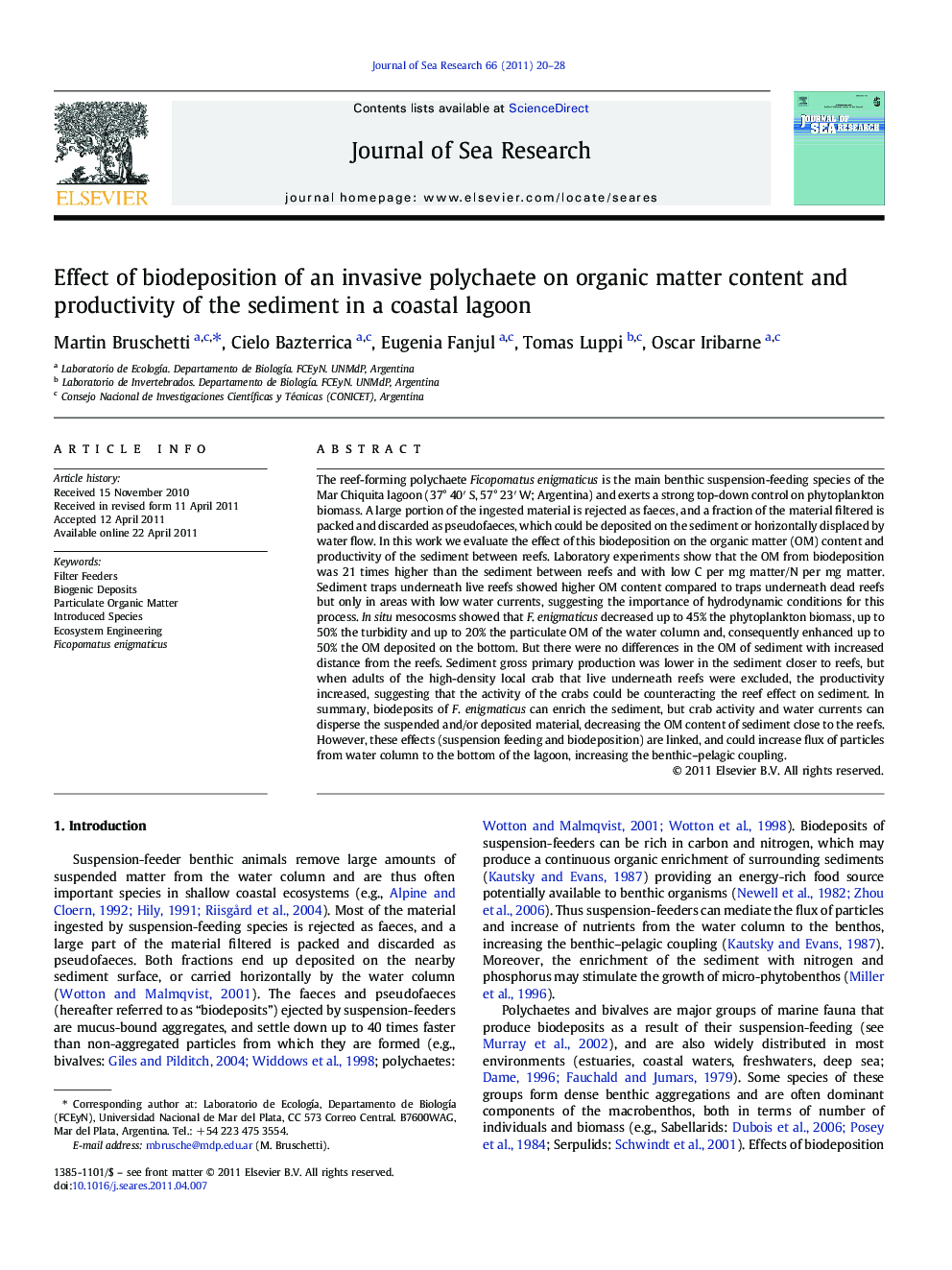| کد مقاله | کد نشریه | سال انتشار | مقاله انگلیسی | نسخه تمام متن |
|---|---|---|---|---|
| 4550081 | 1328128 | 2011 | 9 صفحه PDF | دانلود رایگان |

The reef-forming polychaete Ficopomatus enigmaticus is the main benthic suspension-feeding species of the Mar Chiquita lagoon (37° 40′ S, 57° 23′ W; Argentina) and exerts a strong top-down control on phytoplankton biomass. A large portion of the ingested material is rejected as faeces, and a fraction of the material filtered is packed and discarded as pseudofaeces, which could be deposited on the sediment or horizontally displaced by water flow. In this work we evaluate the effect of this biodeposition on the organic matter (OM) content and productivity of the sediment between reefs. Laboratory experiments show that the OM from biodeposition was 21 times higher than the sediment between reefs and with low C per mg matter/N per mg matter. Sediment traps underneath live reefs showed higher OM content compared to traps underneath dead reefs but only in areas with low water currents, suggesting the importance of hydrodynamic conditions for this process. In situ mesocosms showed that F. enigmaticus decreased up to 45% the phytoplankton biomass, up to 50% the turbidity and up to 20% the particulate OM of the water column and, consequently enhanced up to 50% the OM deposited on the bottom. But there were no differences in the OM of sediment with increased distance from the reefs. Sediment gross primary production was lower in the sediment closer to reefs, but when adults of the high-density local crab that live underneath reefs were excluded, the productivity increased, suggesting that the activity of the crabs could be counteracting the reef effect on sediment. In summary, biodeposits of F. enigmaticus can enrich the sediment, but crab activity and water currents can disperse the suspended and/or deposited material, decreasing the OM content of sediment close to the reefs. However, these effects (suspension feeding and biodeposition) are linked, and could increase flux of particles from water column to the bottom of the lagoon, increasing the benthic–pelagic coupling.
► Sediment traps under live reefs showed higher organic matter only with low water currents.
► Ficopomatus decreased 45% the phytoplankton and 50% the turbidity of the water.
► Ficopomatus enhanced up to 50% the organic matter deposited on the sediment.
► Sediment production surrounding the reefs increased when the crabs were excluded.
► Crabs and water currents may counteract reef effect on organic matter content of sediment.
Journal: Journal of Sea Research - Volume 66, Issue 1, July 2011, Pages 20–28